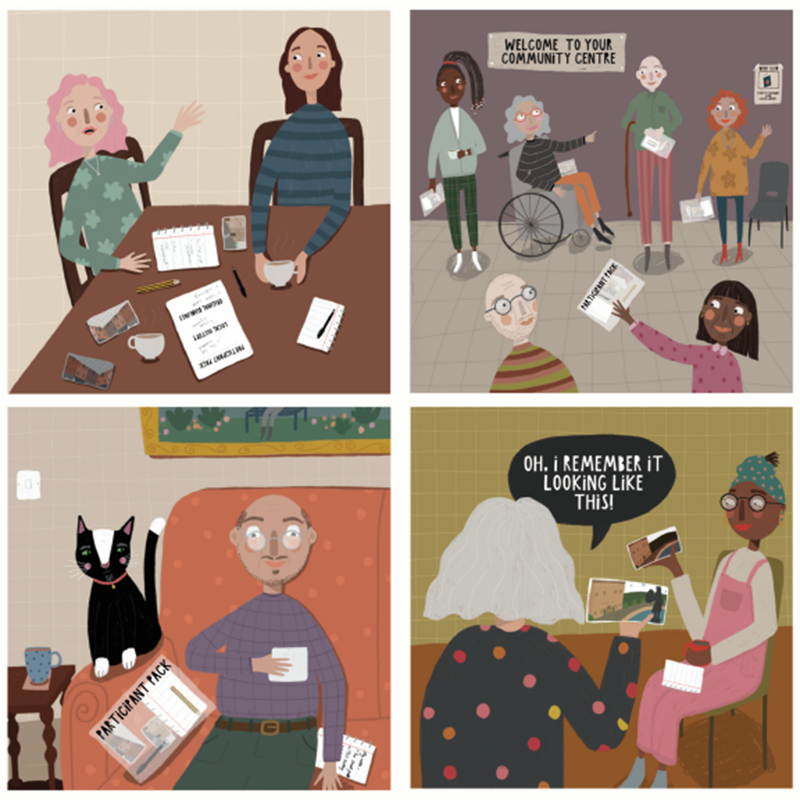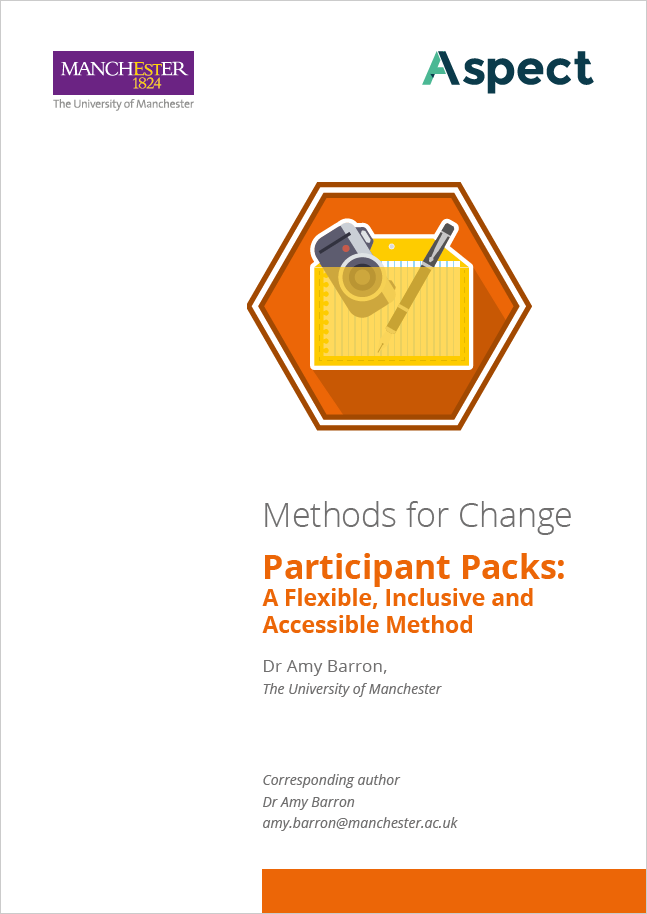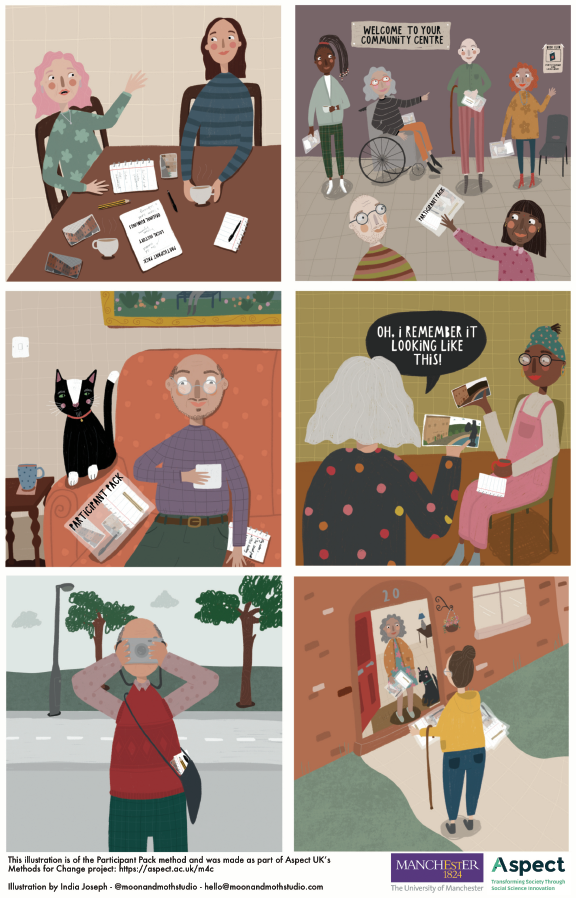Research Method: Participant Packs
The Participant Pack is a flexible and open-ended research method which includes non-prescriptive prompts for engagement. A Participant Pack might include photographs of a place from some point in the past or present to encourage reflection; a notebook in which participants may write ideas or sketch; coloured pens; news articles; a disposable camera; a Dictaphone (voice recorder); leaflets; worksheets; or crafting materials.
The pack may be created with a specific intention (left with the participant with a specific set of tasks and activities in mind), or it could be used in a more exploratory and open-ended way (left with the participant with prompts to engage with the materials in the pack at their own behest). It is down to the researcher to decide how focused or open the Participant Pack is.
I developed the idea of using a Participant Pack whilst researching with older people in Greater Manchester. I used it alongside other participatory methods to better understand the changing relationships between older people and the places in which they live. Creating a Participant Pack was intended to make researching older people’s experiences of place more accessible and inclusive for those who may be unable or prefer not to walk. Indeed, some participants preferred to not walk for reasons including a dislike for cold and rainy weather, other time pressures, the need to use a walking aid, bodily pain, or health conditions. Moreover, although walking is often the ‘go-to’ method when researching place, I was conscious that walking may not be the ideal or easy choice for older participants and that those who were less mobile were likely to call into play very different associations with place. The Participant Pack was therefore developed as an alternative and inclusive method to walking, to allow participants to communicate their experiences of place without necessarily being physically in the place itself. In this way, Participants Packs are a useful method to increase the inclusivity of other methods that might require physical mobility and moving around place. Within this collection Participant Packs could be used as a supplementary method to Photo go-alongs, Walk-along Interviews and Mobile Visual Methods with people from a range of ages, abilities, genders and cultural backgrounds who might not be able, or not feel safe to, engage in public space.
You can find all the research outputs from the Methods for Change series here







